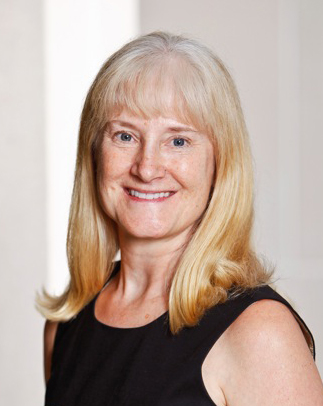
UC San Diego Biology Professor Named Prestigious HHMI Professor
Published Date
By:
- Kim McDonald
Share This:
Article Content
A biology professor at UC San Diego who heads a research institute that brings together scientists across the campus studying circadian rhythms, the internal “biological clock” that governs the daily activities in humans and other organisms, has been named by the Howard Hughes Medical Institute an HHMI professor. The prestigious honor carries with it a $1 million grant over the next five years.
Susan Golden, director of UC San Diego’s Center for Circadian Biology, was announced today as one of 15 leading scientist-educators from 13 universities selected as HHMI professors following a competition that involved the review of 173 competitive proposals. According to HHMI, these scientists will use their awards “to create activities that integrate their research with student learning in ways that enhance undergraduate students’ understanding of science.”
“HHMI professors are accomplished research scientists who are making science more engaging for undergraduates,” the Institute said in its announcement. “By providing HHMI professors with the funds and support to implement their ideas, HHMI hopes to empower these individuals to create new models for teaching science at research universities. “
“Exceptional teachers have a lasting impact on students,” said HHMI President Robert Tjian. “These scientists are at the top of their respective fields and they bring the same creativity and rigor to science education that they bring to their research.”
Golden will use the bulk of her HHMI award to initiate a new undergraduate course at UC San Diego called the BioClock Studio, which, she said, “will challenge students to translate and communicate research findings in a way that will shape education as well as public, medical and community behaviors related to circadian biology.”
Top students from an existing upper division course on circadian rhythms that Golden and other faculty teach each fall will form the core of this new course, she said, and “will be joined by students with interests in art, communication, computer science, journalism and education, to develop a suite of educational materials designed for diverse audiences.”
Faculty and students in this new course will then work together to prepare a MOOC, a massive open online course, on circadian rhythms that will provide additional opportunities for students and others outside of the campus to learn more about the impact that changes in our biological clocks—from late-night shift work to jet lag—can have on our health.
If more people understand the impact their internal biological clocks have on their health and safety, the public benefits would be tangible and far reaching, Golden said. They include “enhanced public safety from fewer industrial and traffic accidents; health benefits from optimally timed treatments and reduction in obesity; improved agricultural and industrial productivity through better environmentally adapted crops, and health-protecting labor practices,” she added.
A member of the prestigious National Academy of Sciences and a Fellow of the American Academy of Microbiology, Golden joined the UC San Diego faculty in 2008 as a Distinguished Professor in the Division of Biological Sciences’ Section of Molecular Biology and is an expert on the circadian rhythms of cyanobacteria.
Share This:
You May Also Like
Stay in the Know
Keep up with all the latest from UC San Diego. Subscribe to the newsletter today.



